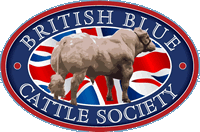Judging Etiquette
Many people, including cattle exhibitors, judges and those who are contemplating both, ask what rules cattle judges follow?
The answer is simply - there are none. But over many years a procedure or etiquette has evolved, which Agricultural Show Societies expect to be followed. Showing cattle is a very personal activity. Breeders spend many years and months preparing their entries. To them their exhibits are the best. No wonder emotions are charged - win or lose - when another cattleman is asked to select one out of a grand bunch. Hence the need for rules to ensure that the competition is well organised, technically sound and competitors are treated as people and not catalogue numbers.
With the help of experienced judges from within the Society, the following notes have been compiled.
It is a great honour to be asked by an Agricultural Society to be a judge. Invitations should be answered quickly, for the organisers have to produce catalogues and entry forms well in advance of the Show Date. When the big day comes punctuality is essential together with appropriate attire. For men a dark suit and at some shows, a bowler hat.
Even though many of the exhibitors will be friends, the urge to walk down the cattle lines before judging, must be curbed. If time allows competitors often welcome the judge. Cattle breeders are constantly seeking knowledge and hints, which will enable them to improve.
The Judge is in charge and will be blamed if the organisation goes wrong, so planning is essential.
Helpful Hints for Judges
Be punctual
Keep away from the stock lines
Dress smartly
1. Organisation
On arrival at the show ground make contact with the officials and agree
how the judge and stewards are going to work. Encourage the stewards
to take their responsibilities seriously.
Examine the ring and work out a strategy beforehand.
- Where is the exit? Animals will walk quickly to and slowly away from exits
- Where is the high ground?
- Where is the low ground?
- Which is the best place to line up the winners?
- Where is the best place to examine individual animals?
2. Entry of exhibits into the ring
Have the animals presented to you in age order walking clockwise around
the ring and do not allow animals in until the whole class is assembled.
Ask the steward to remove any lame, sick or dangerous animals from
the ring.
3. Judging
Try to put the owners at their ease, when they present their animals
to you, smile and talk to them.
Look at the animals individually, walking towards, away and alongside you.
Place your hands on the animal’s loin, tail head, testicles, hocks, rump, etc.
Big heavily muscled cattle soon tire in the show ring. Prevent them having to trail round and round.
Is it necessary to identify the bottom animal in a class of say 20? It may be more tactful to just find the best 12. Judges should give encouraging positive comments to those not selected.
The exhibitor’s feelings should be considered kindly as they are rejected.
In a large or difficult class a pyramid system
sometimes helps i.e. instead of pulling the animals in order, line
them up and select as below.

4.
The Reputation of Our Breed
In the interests of safeguarding the reputation of our breed, the Executive
Council would ask that members respect the following recommendation:
-
“It is advised that only naturally calving females are exhibited at shows and events: Judges are asked to be mindful of this recommendation when making decisions.
The Executive Council would ask that you respect the recommendation above, but we leave it at your discretion as to how you handle this issue in the show ring.
5. Prize Presentation
Explain your reasons to the handlers when you present the rosettes
and continue down the line. The person at the bottom of the line needs
more help reassurance and encouragement than your winner; they know
they’ve got it right. Most people are there to learn.
Always try to dwell on the positive points rather than the negative ones.
Judge the animals on the day as they are presented to you.
It is normal practice having chosen the champion, to have the second placed animal of the same class brought into the ring before judging the reserve champion - consult your steward.
Be prepared to give reasons over the public address system if appropriate.
6.
Timing
Judges must not be rushed if they are to be fair. But, be aware of
the time it is taking you, as people at the side of the ring soon get
bored.
7. Finally
If exhibitors expect judges to follow the etiquette the judges should
expect to be treated with respect and be extended the common courtesies.
In addition exhibitors should look smart, wear clean white coats, and
a tie.
Revised Oct 2014

